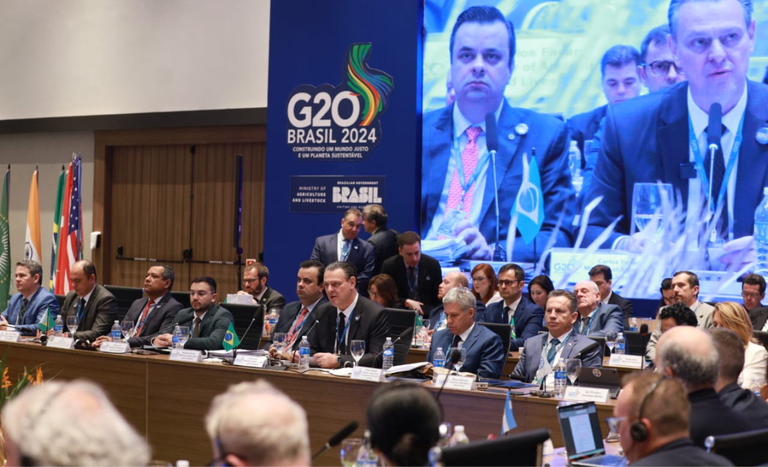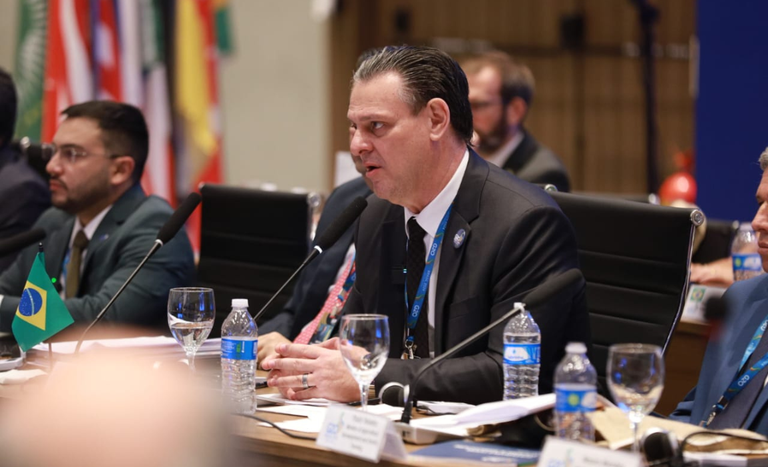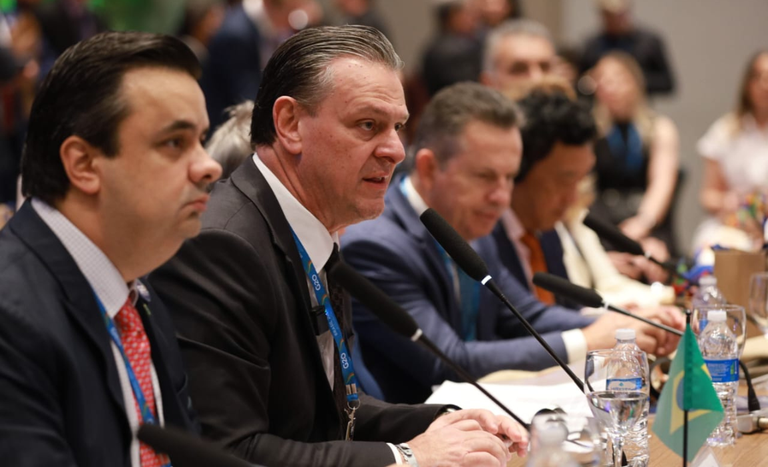Notícias
G20
Opening of the Ministers' Meeting of the G20 Agriculture Working Group focuses on preservation and strategies to combat hunger
On Thursday (12), Brazil's Minister of Agriculture and Livestock, Carlos Fávaro, initiated the ministerial meeting of the G20 Agriculture Working Group (AWG) in Mato Grosso. This significant gathering aims to address global food security and sustainability challenges.
The opening session included participation from ministers and deputy ministers from Germany, South Africa, Argentina, Saudi Arabia, Azerbaijan, Chile, China, the United Arab Emirates, Spain, the United States, the Netherlands, India, Indonesia, Italy, Japan, Norway, Portugal, the United Kingdom, Russia, Singapore, and Uruguay, along with representatives from the European Union and the Food and Agriculture Organization of the United Nations (FAO). In total, 50 delegations attended the event.
This marks the 14th meeting of the G20 Agriculture Working Group and the first time Brazil has hosted the event. During the opening, Minister Carlos Fávaro emphasized President Luiz Inácio Lula da Silva's commitment to reestablishing diplomatic relations and Brazil’s leadership in major international forums like the BRICS presidency and COP 30 in 2025. “This increases Brazil's responsibility, and we are here united to contribute to this pivotal moment in global geopolitics,” said Fávaro.
The minister also highlighted that the central theme of the meeting is to build a fair world through sustainability, with a focus on global efforts to combat hunger while maintaining agricultural production. “Under President Lula’s directive, Brazil will not follow the model that led us here; we don’t need to encroach upon forests and savannas to intensify food production. We have about 90 million hectares of degraded land, and Brazil can nearly double its food production without expanding into forests,” affirmed Fávaro.
Edipo Cruz, Executive Secretary of the Ministry of Fisheries and Aquaculture, emphasized that Brazil's presidency in the G20 will facilitate crucial discussions on environmental preservation. “It will enable us to bring marine conservation, or 'blue transformation,' to the forefront of multilateral discussions, considering that marine pollution directly impacts global food security. Aquatic environments provide essential, high-quality nutrients, especially for traditional populations, contributing to the fight against hunger and poverty,” he explained.
The Brazilian minister of Agrarian Development and Family Agriculture, Paulo Teixeira, highlighted that the discussions on Thursday (12) and Friday (13) are essential for preservation and strengthening the role of small and medium producers. FAO Director-General, Qu Dongyu, emphasized that these discussions carry great responsibility and should promote long-lasting strategies to combat hunger sustainably.
Following the opening ceremony, panels on sustainable and productive agricultural systems were conducted by B20 Brazil, the Luiz de Queiroz College of Agriculture at the University of São Paulo (Esalq/USP), and the Inter-American Institute for Cooperation on Agriculture (IICA).
Press information
imprensa@agro.gov.br


